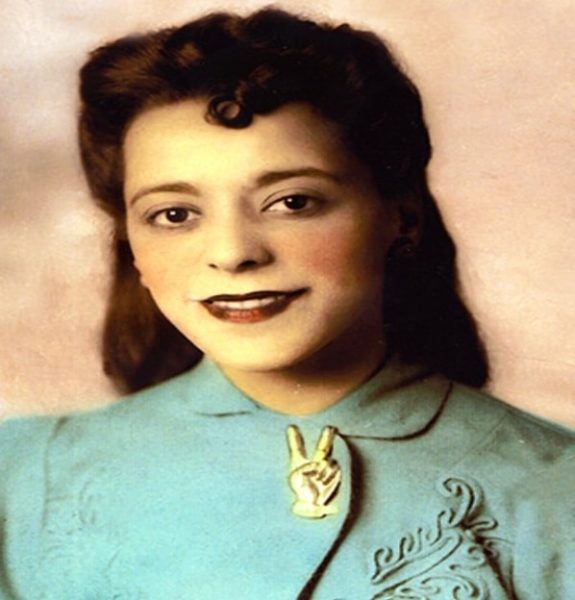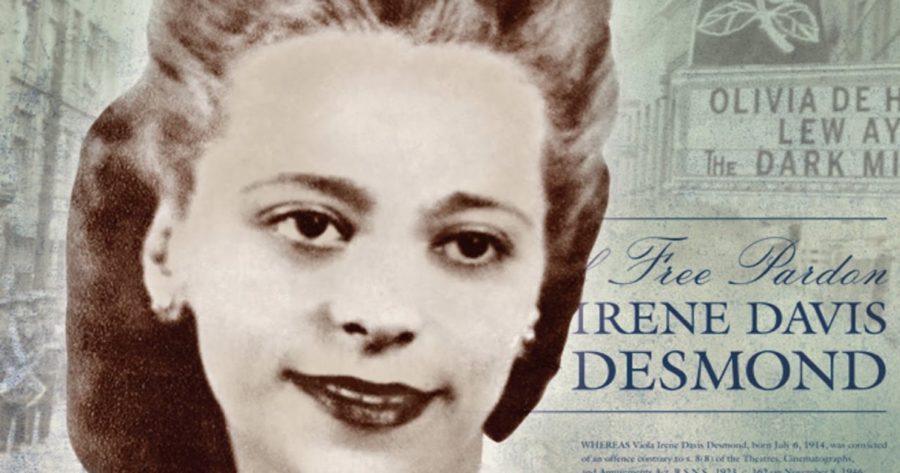In 20218, the Canadian government named Viola Desmond a National Historic Person
The Honourable Sean Fraser, Minister of Immigration, Refugees and Citizenship, and Member of Parliament for Central Nova Scotia will take part in a Historic Sites and Monuments Board of Canada plaque unveiling ceremony on Friday, August 12th, to commemorate the national historical significance of Viola Desmond (1914-1965).
Desmond, an African Canadian Halifax businesswoman, ignited nationwide attention to the African Nova Scotian Community’s struggle for equal rights and was recognized as an icon of Canada’s human rights and freedoms movement.
Viola Irene Desmond, a businesswoman and civil rights activist, was born July 6th, 1914, in Halifax, NS and; died February 7th, 1965, in New York, NY. Viola Desmond built a career and business as a beautician and was a mentor to young Black women in Nova Scotia through her Desmond School of Beauty Culture.

In 1946, Viola Desmond challenged racial discrimination when she refused to leave the segregated Whites-only section of the Roseland Theatre in New Glasgow, Nova Scotia. Viola Desmond was arrested, jailed overnight and convicted without legal representation for an obscure tax offence.
Despite the efforts of the Nova Scotian Black community to assist her appeal, Viola Desmond could not remove the charges against her and went unpardoned in her lifetime. Desmond’s courageous refusal to accept an act of racial discrimination inspired later generations of Black persons in Nova Scotia and the rest of Canada.
In 2010, Lieutenant Governor Mayann Francis granted Desmond a free pardon. In December 2016, the Bank of Canada announced that Viola Desmond would be the first Canadian woman to be featured by herself on the face of a banknote — the $10 note released on November 19th, 2018.
Change didn’t happen quickly, and it is difficult to say whether Desmond’s experience directly affected the quest for racial equality in the province. Nonetheless, her choice to resist the status quo and the community support she received revealed a mobilization for change among Nova Scotia’s Black population members. They were no longer willing to endure life as second-class citizens.
In 1954, segregation was legally ended in Nova Scotia, largely thanks to the courageous determination of Viola Desmond and others like her who fought to be treated as equal human beings.

Racial segregation laws and everyday social practices have historically limited the freedoms of Black Canadian citizens. Desmond’s story is rich proof that Black Canadians, throughout history, have done so much to make Canada the culturally diverse, inclusive, compassionate and prosperous nation it is today.
“The designation process under Parks Canada’s National Program of Historical Commemoration is largely driven by public nominations. To date, more than 2,200 designations have been made across Canada. To nominate a person, place or historical event in your community, please visit the Parks Canada website for more information: “said, Parks Canada
Image Credit: Canada Encyclopedia and Viola Desmond.Org









